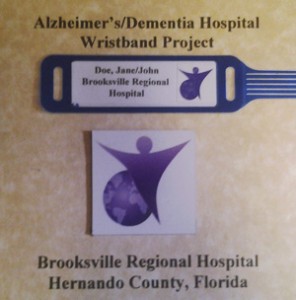
One of the many problems I’ve witnessed while caring for my father with Alzheimer’s disease is that medical professionals would ask him questions and take his answers as if it was the gospel truth. Many times these were crucial questions about his medical history. Sometimes this would happen, right after I had just explained to them that he was currently in the latter stages of the disease. The answers my dad was giving were so inaccurate that I found myself shocked to see them actually being written down.
To all medical professionals reading this, please make sure you get some sort of verification regarding any essential questions that are answered by someone with a diagnosis of a dementia related disease. If the patient happens to be alone, please take a couple of extra minutes out of your demanding schedule and make sure that someone has called a family member or the patient’s advocate for corroboration. You would think this would be a common sense standard practice, but trust me, it is not.
Just seeing these patients sitting in front of you should alert you to a very important fact; they have been taken out of their indispensible daily routine. Like me, if you have cared for loved ones with dementia, you know that “routine” is the key to keeping their anxiety and confusion levels down.
I understand that everything is generally fast paced in a health care setting. More often than not the reason for someone to be in a hospital in the first place is due to a need for acute care. However, patients suffering with dementia require a more unambiguous type of care.
 This is where the importance of a new hospital wristband comes into play. With the new purple angel logo representing all types of dementias on the band, medical staff will know that, without a doubt, the questions being answered by this dementia patient needs verification. This knowledge could be life saving.
This is where the importance of a new hospital wristband comes into play. With the new purple angel logo representing all types of dementias on the band, medical staff will know that, without a doubt, the questions being answered by this dementia patient needs verification. This knowledge could be life saving.
You could have asked my father the same question twice within a ten minute period and you would have most likely received two completely different answers; maybe more! Which one was correct? Any of them?
The training involved in the Alzheimer’s/Dementia Hospital Wristband Project I initiated will be educated by the Gulf Coast Alzheimer’s Association Chapter. This, and many more instructions on dementia care, will be presented to all hospital staff members during the pilot program which is taking place at Brooksville Regional Hospital in Hernando County, Fl. It’s important to note that this type of dementia care should be practiced by all medical professional and first responders when dealing with dementia patients, not just in the hospitals.
Let’s make the extra effort to be sure that all dementia patients remain safe. Verifying vital medical information is a huge step in the right direction.
Gary Joseph LeBlanc
Common Sense Caregiving
http://www.commonsensecaregiving.com









